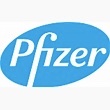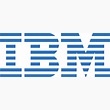Pfizer and IBM Jointly Developing a Remote System to Monitor Parkinson’s Progression and Care
Written by |


 Pfizer Inc. and International Business Machines Corporation (IBM) announced a collaborative research project to advance the development of remote medical monitoring solutions that aim to transform how clinicians deliver care to people with Parkinson’s disease.
Pfizer Inc. and International Business Machines Corporation (IBM) announced a collaborative research project to advance the development of remote medical monitoring solutions that aim to transform how clinicians deliver care to people with Parkinson’s disease.
The first-of-its-kind experimental approach employed by Pfizer and IBM will harness a system of sensors, mobile devices, and machine learning to deliver real-time, around-the-clock patient symptom information to clinicians and researchers. The collaboration’s ultimate goal is to better understand a Parkinson’s patient’s disease progression and medication responses, to help inform treatment decisions and optimize the design of clinical trials, as well as speed the development of new therapeutic options.
The research partners note in a release that Parkinson’s disease (PD) requires especially close monitoring and frequent adjustment of medication depending on how the disease progresses in individual cases, and on how each patient responds to treatment. The investigators are seeking to create holistic assessments of a patient’s well-being through accurate measurement and correlation of a range of function and symptom indicators, including motor function, dyskinesia, cognition, sleep, and performance of daily activities such as grooming, dressing and eating.
Insights derived from these data are expected to assist clinicians in understanding the effects of medication on disease progression, enabling optimization and tuning of each patient’s treatment regimen. Data generated may also provide researchers with insights and real-world evidence that can help accelerate development of new and potentially better PD therapies.
According to the World Health Organization, neurological disorders — which include Parkinson’s disease, Alzheimer’s disease, stroke, multiple sclerosis and epilepsy — affect almost one billion families globally and account for 12 percent of total annual mortality. Many diseases affecting the brain, spine, and nervous system are progressive conditions, meaning they worsen over time with symptom exacerbations such as uncontrolled muscle movement, impairment of the ability to think clearly, and a debilitating impact on quality of life. According to the Parkinsons Disease Foundation, approximately 60,000 Americans are diagnosed with Parkinson’s disease annually, with an estimated seven to 10 million people suffering from the disease globally.
“We have an opportunity to potentially redefine how we think about patient outcomes and 24/7 monitoring, by combining Pfizer’s scientific, medical and regulatory expertise with IBM’s ability to integrate and interpret complex data in innovative ways,” says Mikael Dolsten, MD, PhD, president of Pfizer Worldwide Research and Development, in the release. “The key to our success will be to deliver a reliable, scalable system of measurement and analysis that would help inform our clinical programs across important areas of unmet medical need, potentially accelerating the drug development and regulatory approval processes and helping us to get better therapies to patients, faster.”
“With the proliferation of digital health information, one area that remains elusive is the collection of real-time physiological data to support disease management,” says Arvind Krishna, senior vice president and director of IBM Research. “We are testing ways to create a system that passively collects data with little to no burden on the patient, and to provide doctors and researchers with objective, real-time insights that we believe could fundamentally change the way patients are monitored and treated.”
Pfizer and IBM project that the system they’re developing will advance to initial clinical testing quickly, and the companies will convene an external advisory board of patient groups, advocacy organizations, clinicians, and neuroscientists to advise and guide the use of technology, medical devices, data management, and research protocols developed through the partnership, and to ensure that the needs of patients who participate the program are addressed.
 IBM says the project marks a significant milestone in its work to advance Internet of Things (IoT) technologies in healthcare. It notes that Emory University Hospital in Atlanta, Georgia, is developing an instrumented ICU using IBM streaming analytics technology and software, and Excel Medical Electronics (EME), to advance predictive medicine for ICU patients through real-time streaming analytics.
IBM says the project marks a significant milestone in its work to advance Internet of Things (IoT) technologies in healthcare. It notes that Emory University Hospital in Atlanta, Georgia, is developing an instrumented ICU using IBM streaming analytics technology and software, and Excel Medical Electronics (EME), to advance predictive medicine for ICU patients through real-time streaming analytics.
Emory is testing a new system that can identify patterns in physiological data and alert clinicians to danger signs manifesting in patients in real time. IBM observes that in a typical ICU, a dozen different streams of medical data may be lighting up an array of monitors at a patient’s bedside — including heart physiology, respiration, brain waves, and blood pressure — with this constant feed of vital signs transmitted as waves and numbers, and routinely displayed on computer screens. Doctors and nurses must rapidly process and analyze all this information to make medical decisions.
The new system Emory is investigating will enable clinicians to acquire, analyze, and correlate medical data at a volume and velocity never before possible — more than 100,000 real-time data points per patient per second — using IBM’s streaming analytics platform in combination with EME’s bedside monitor data aggregation application. The software developed by Emory scientists identifies patterns that could indicate serious complications like sepsis, heart failure, or pneumonia.
“Accessing and drawing insights from real-time data can mean life and death for a patient,” says Tim Buchman, MD, PhD, director of critical care at Emory University Hospital. “Through this new system we will be able to analyze thousands of streaming data points and act on those insights to make better decisions about which patient needs our immediate attention and how to treat that patient. Its making us much smarter in our approach to critical care.”
 Neonatal intensive care specialists at the University of Ontario Institute of Technology in Toronto are relying on the same software to analyze more than 1,000 pieces of unique information per second flowing from sensors and equipment monitoring premature babies, helping caregivers spot the onset of sepsis infections up to 24 hours earlier.
Neonatal intensive care specialists at the University of Ontario Institute of Technology in Toronto are relying on the same software to analyze more than 1,000 pieces of unique information per second flowing from sensors and equipment monitoring premature babies, helping caregivers spot the onset of sepsis infections up to 24 hours earlier.
 The project will see a group of internationally recognized researchers, led by Dr. Carolyn McGregor, a UOIT associate professor and Canada Research Chair in Health Informatics, use advanced stream computing software developed by IBM Research with the objective of greatly enhancing doctors’ decision-making capabilities. The software processes a constant stream of biomedical data, such as heart rate and respiration, along with environmental data gathered from advanced sensors and more traditional monitoring equipment on and around the babies.
The project will see a group of internationally recognized researchers, led by Dr. Carolyn McGregor, a UOIT associate professor and Canada Research Chair in Health Informatics, use advanced stream computing software developed by IBM Research with the objective of greatly enhancing doctors’ decision-making capabilities. The software processes a constant stream of biomedical data, such as heart rate and respiration, along with environmental data gathered from advanced sensors and more traditional monitoring equipment on and around the babies.
The software will also assist the researchers in applying findings from Dr. McGregor’s body of research to help make “sense” of the data and, feed resulting analyses in near-real-time to healthcare professionals, so they can predict potential changes in an infant’s condition with greater accuracy and intervene more quickly. Physicians in neonatal intensive care units (NICU) at Toronto’s Hospital for Sick Children and two other international hospitals are also participating in this study.
Medtronic is also working with IBM Watson Health to create a cognitive app designed to analyze real-time data from Medtronic devices to help detect patterns and trends for people with diabetes.
You can learn more about IBM Research at:
https://www.research.ibm.com
and about IBM Watson Health at:
https://www.ibm.com/watsonhealth
For more information about Pfizer visit https://www.pfizer.com
Sources:
Pfizer Inc.
International Business Machines Corporation (IBM)
World Health Organization


